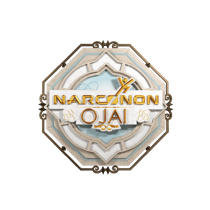Taking Care of Yourself—Health Habits that Help Lead to a Sober Life

Those who are recovering from drug and alcohol addiction have made a resolute commitment to live better, healthier, more ethical, and more fulfilling lives. However, going to a rehab center and getting off of drugs is just the first step on the road to recovery. One has to follow up the commitment with healthy habits across all aspects of his or her life. The best place to begin doing so is with one’s diet, one’s sleep schedule, and one’s exercise regimen.
Eating Right – The Importance of Healing the Body with Good Food
It’s common sense knowledge that everyone, no matter who they are, should eat well. A healthy diet sets the stage for a healthy life, as the types of food one puts in their body play a huge role in the healthy condition of their body. The foods people eat can affect both their mood and their physical health, both of which need to be cared for during the recovery process.
Most health experts recommend that recovering addicts maintain a well-balanced and diversified diet that is rich in whole foods from the five recommended food groups (fruits, vegetables, grains, proteins, and dairy). Nutritionists emphasize the importance of whole foods as being key to recovery. Artificially processed or modified foods are unhealthy and do not provide a recovering addict’s body with the nutrients he or she needs to heal. Furthermore, poor quality food can become a habit. And as bad habits tend to beget bad habits, eating poorly could start a recovering addict down a behavioral landslide towards other unhealthy habits.
Some dietitians have even put together meal plans that are especially suited for people recovering from drug and alcohol addiction. Some such foods include:
- Whole foods that contain the amino acid tyrosine. This amino acid is the precursor to the “feel good” neurotransmitter dopamine. Dopamine is usually at notably low levels when one is first into recovery, and that can lead to low energy, lack of motivation, apathy, and depression. A simple and healthy way to boost natural dopamine levels is to eat foods rich in tyrosine. Such foods include whole grains, bananas, soybeans, sunflower seeds, lean beef, lamb, pork, and cheese.
- Foods that are high in antioxidants. Antioxidants help build up the immune system, a bodily system that is usually severely harmed from drug use. A recovering addict should eat foods such as blueberries, strawberries, leeks, onions, artichokes, and pecans to get plenty of antioxidants. Doing so helps cleanse the body during and after withdrawal and detox.
- Foods that boost GABA levels. GABA is a neurotransmitter that promotes calm and relaxation. Over the course of extended drug use, a recovering addict’s GABA transmitters are usually quite depleted. While in recovery, individuals should eat lots of kefir, shrimp, cherry tomatoes, fava beans, soy, lentils, whole grains, sunflower seeds, halibut, broccoli, potatoes, and cocoa. Doing so will help offset anxiety and restlessness symptoms.
Sleep and Addiction Recovery
Something as simple as one’s sleep plays a role in addiction recovery. People who struggle with certain types of drug use often do not sleep enough. And conversely, some people may seek out other kinds of substances in order to sleep more. But without a doubt, addictive drugs and alcohol take their toll on one’s sleep schedule.
According to Dr. Nora Volkow, the director of the National Institute on Drug Abuse, “We now know that most kinds of substance use acutely disrupt sleep-regulatory systems in the brain, affecting the time it takes to fall asleep (latency), duration of sleep, and sleep quality. People who use drugs also experience insomnia during withdrawal, which fuels drug cravings and can be a major factor leading to relapse. Additionally, because of the central role of sleep in consolidating new memories, poor quality sleep may make it harder to learn new coping and self-regulation skills necessary for recovery.”
All of these factors indicate that sleep is harmed by addiction. The good side of all this is that once one is in recovery, making a point to get sufficient rest can have a positive effect on one’s recovery process. Just as lack of sleep made one’s life more stressful during one’s drug-using years, getting enough sleep in recovery can have a hugely beneficial effect on one’s sobriety and their life in general.
Exercise—A Recovering Addict’s Tool for Health and Sobriety

There’s been a fair amount of empirical research that has indicated recovering addicts who get plenty of exercise, are less likely to fall prey to relapse triggers (like environmental cues from places where they used to use drugs).
In a lot of ways, exercise produces what might be called a “natural high.” Endorphins, a “feel good” chemical, are released during exercise. Furthermore, exercise increases heart rate and respiratory rate. Exercise “makes people feel more alive,” heightens senses, increases wakefulness and alertness, and generally improves mood and attitude.
Exercise, then, has a two-pronged effect. Exercise improves one’s mood and make him or her less likely to use substances purely from an emotional standpoint. And it also is beneficial for a recovering addict’s body, helping him or her heal, rebuild muscle, burn fat, increase cardiovascular function, improve organ health, etc.
The Road to Recovery is a Walkable (Or Runnable) One
Sometimes the prospect of facing a life without drugs can be daunting, even for those who are fresh out of rehab and have kicked their addiction. But the key to a successful and drug-free life begins just like anything else. One day at a time. One step at a time. One good night’s rest at a time. One healthy meal at a time.
If recovering addicts commit to a healthy life in their recovery, they’ll likely find that life is more comfortable and more pleasant for them.
Sources:
- https://health.usnews.com/health-care/for-better/articles/2018-12-03/foods-that-are-good-for-addiction-recovery
- https://www.drugabuse.gov/about-nida/noras-blog/2020/03/connections-between-sleep-substance-use-disorders
- https://pubs.acs.org/doi/abs/10.1021/acsomega.8b01713
- https://www.acs.org/content/acs/en/pressroom/presspacs/2018/acs-presspac-november-14-2018/how-exercise-could-help-fight-drug-addiction.html


